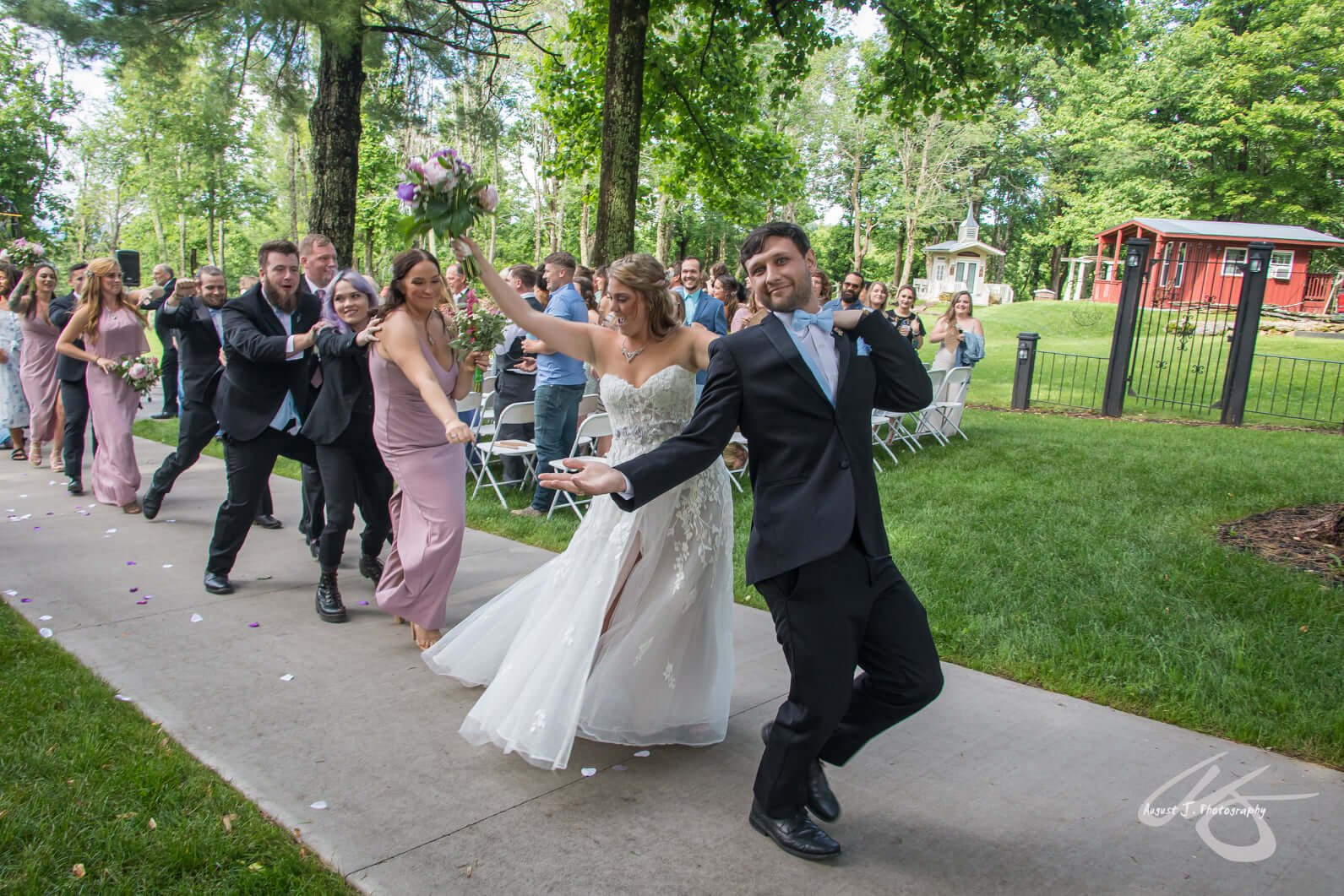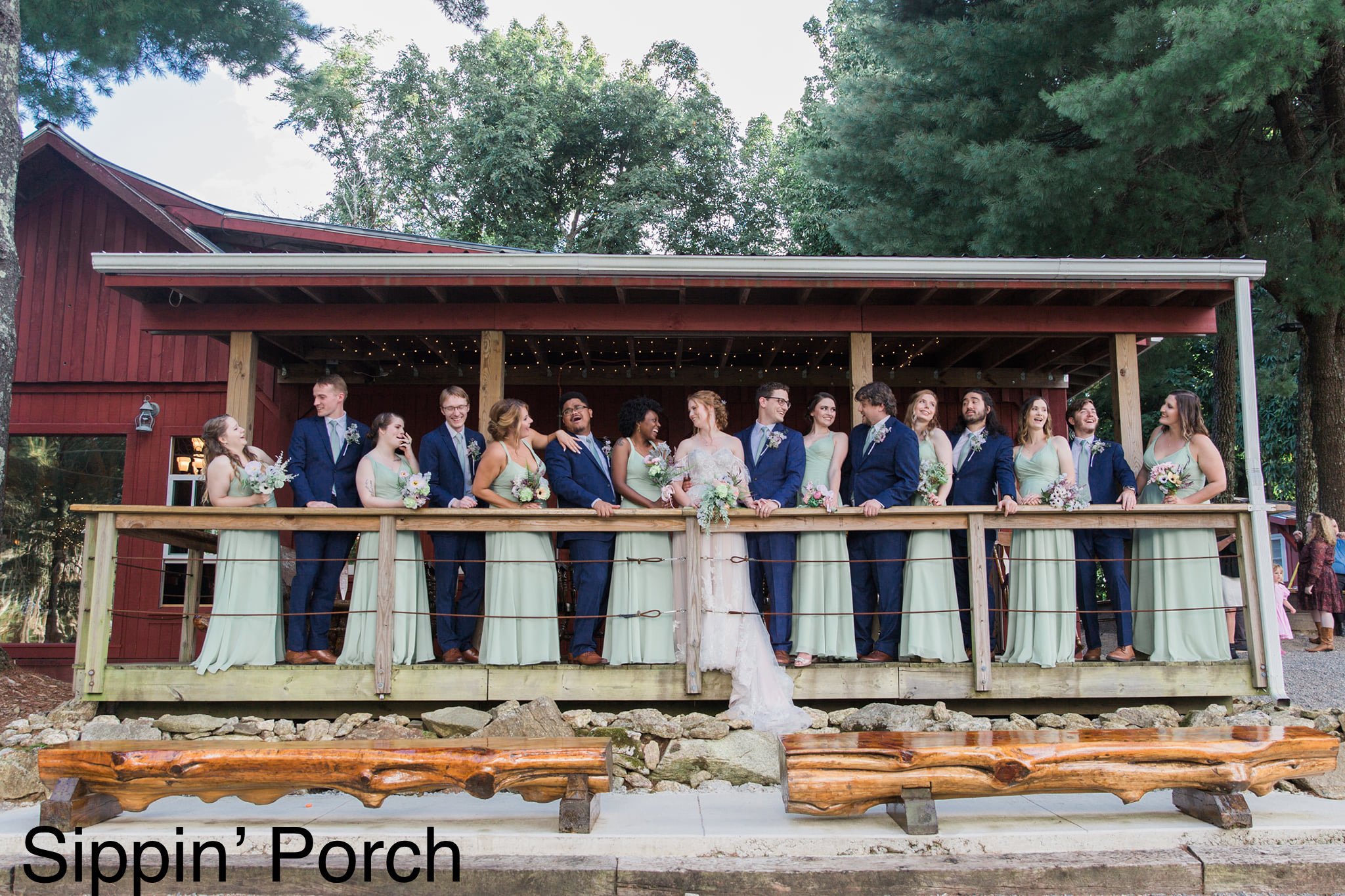Your ultimate guide to the wedding rehearsal
So, you have the wedding day all planned out and with a little luck and a lot of planning (hopefully with a planner), you are ready to go! Congrats!
But, there is one thing that stands in the way of the wedding day and you get there the wedding rehearsal. Today, I’d like to explore this a bit and provide you with everything you need to know about getting through it effectively and in a timely manner too!
Having a Planner or Administrator
The first thing I recommend is that you work with your planner to help gather the necessary people for your wedding.
The bridal party, the parents, and grandparents, the officiant, and anyone that needs to be included in the ceremony. Alternatively, if you don’t have a planner, you will need to designate someone to help oversee the wedding rehearsal, someone that’s not in the wedding and can usually be a friend of a family member that isn’t in the wedding.
(Just make sure they can tell people what to do, where to stand, and the like)
I Highly recommend that whoever is running the rehearsal for you to start with a quick group meeting and make sure that there is no cell phones or alcohol for the next 20-30 minutes
Couples that Hire a Planner
Paring up your bridal party
Once you’ve chosen who you’d like to have in your wedding party, you’ll want to start thinking about who will walk with whom. While you may have it set in your mind from months ago who will be together and in which order, you need to analyze this during the rehearsal.
If your sides are uneven (more bridesmaids than groomsmen, or vice versa), then two can always be paired with one.
If it doesn’t matter who is paired together, then pair your bridal party by height.
If possible, make sure the groomsman is at least the same height or taller than the gal he is escorting.
This will make both sides happy, trust me.
“Pro Tip: If anyone has had a relationship in the past and is no longer in the relationship, avoid pairing them together.”
Decide on how to enter the ceremony
Depending if you are religious or not, your wedding party can enter several different ways.
Be sure to check with your officiant prior to making any set-in-stone decisions to see if there are any “rules” or tips they recommend.
Usually, there are two ways the wedding party can enter:
Bridesmaids and groomsmen come in together with the exception of the Best Man who remains at the altar with the Groom
All the groomsmen with the groom come to the altar together as a group and the ladies come in on their own.
Either way is generally fine, just make sure you flesh that out when you are there in a group.
Decide the order to come down
Next and just as importantly, you may need to figure out how best to come down and couples mostly choose this based on the importance of the bridal party or by height.
For example, your shorter couples in the bridal party may want to come down first followed by taller couples, you get the idea. We recently did a survey
Special Ceremony Moments (readers, music, dedications, sand ceremony)
You will want to make sure that all people involved know about any special things during your ceremony service. This can include any special processional things like funny dance intros, passage or poem readings, special music, dedications to lost loved ones or family members, moments of silence, sand or rope ceremonies, or anything that is unique to your wedding.
Those that need to know should include:
Officiant or Pastor
Bridal Party
The wedding planner or ceremony manager
Wedding Photographer or Videographer
Any family member that may be a part of the service
Having everything in sync with what’s to come is an important piece of making sure the day goes off right, so include as much high-level detail as you can with regard to those types of things.
Work with the Officiant
A week or two before the wedding rehearsal, it’s a good idea to reach out to the officiant and help provide them with any details that they need to know about for the ceremony. Although your officiant or pastor has most likely performed weddings before, yours will be somewhat unique, so communicate with them.
Generally speaking, they should have some questions that they may ask you regarding how you’d like the ceremony format to be and what you want to include or skip.
A few of the most commonly asked questions officiants ask according to Wedding Wire include:
What role do your families play in your lives?
This should provide them with a good idea of the current family dynamic and if the parents are still married, single, divorced, blended or if there is a need to keep select parents away from each other should there be drama.
How do you want to remember your ceremony? What do you want your friends and family to remember?
This is usually asked because the perfect wedding day is different for each person, they all have different things they would like to see out of the ceremony, so asking them what they’d like to remember out of it is very important.
What have you seen at other weddings that you liked or not liked?
Sometimes couples attend other weddings and there may be something they simply didn’t like about it, maybe it was the processional or an awkward moment of silence that rubbed the wrong way, officiants need to know about stuff like that so it doesn’t happen at your wedding.
How did you meet? When did you fall in love?
Seems like a simple question, but knowing a little background about how you met and fell in love can be a great way for the pastor/officiant to communicate elements of that into the ceremony for your guests.
How did you get engaged? How would you describe your partner?
Again, they may ask to use a snippet of that in the ceremony itself. Having as much detail as they can is helpful.
Who are the best man and maid of honor?
Who are your guests? How do they fit into your lives?
Do you want your ceremony to include any traditional prayers?
Are there any traditions or rituals you’d like to include? Any you want to leave out?
Doing the Dry run
Practice the Processional
As the old saying goes, practice makes perfect, so be sure to do your dry run at least twice so everyone will know where to stand when they come into the ceremony site and they will know what will happen.
Practice the Recessional
Also, practice the recessional at least once while doing the dry run of the wedding, making sure you know how everyone will exit is also important.
Practice where the bridal party goes afterward
Finally, if there is a place where the bridal party needs to be afterward, make sure everyone goes to that spot, this is very important for wedding photos and videos.
Bonus Tip: Make sure that you chat with your photographer and videographer on where to go once the bridal party has exited, there may be another location they want everyone at once your guests leave.







